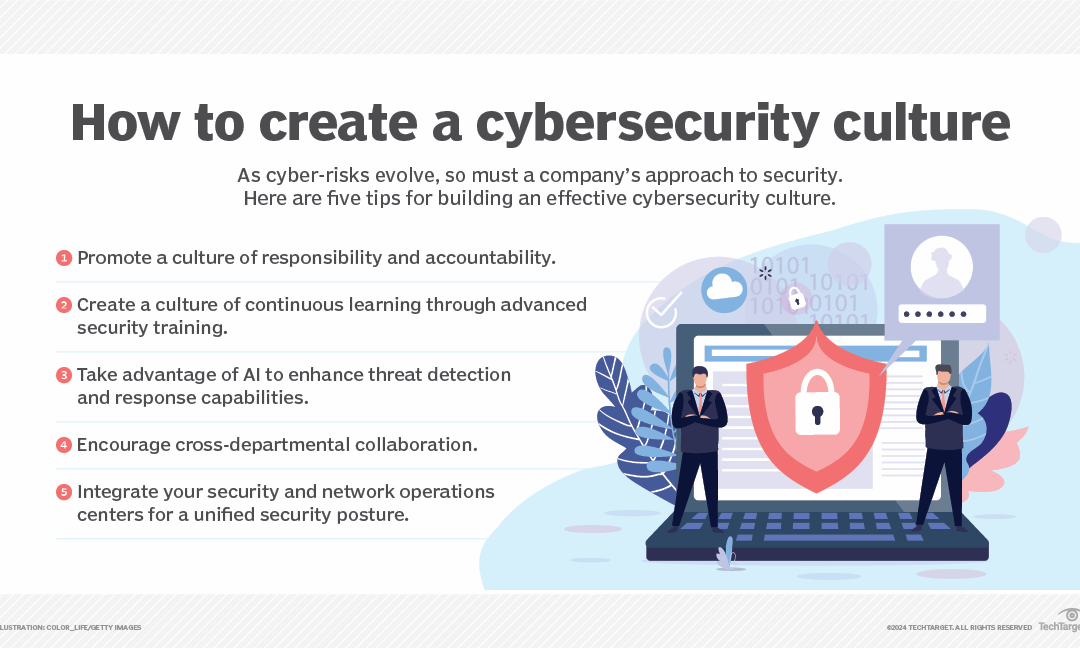Understand the Holiday Season Cyber Threats The holiday season is a time for joy, celebration, and generosity. However, this...


Understand the Holiday Season Cyber Threats The holiday season is a time for joy, celebration, and generosity. However, this...

Cybercriminals steal credit card? Cybercriminals have various methods at their disposal to hack and exploit credit card...

This in-depth cybersecurity planning guide provides information and advice to help organizations develop a successful strategy...

While home health agencies face distinct health IT challenges, collaboration and innovation are crucial for overcoming these...

Understanding Managed IT Services What Are Managed IT Services? Managed IT Services For business are the comprehensive...

Businesses rely heavily on Managed IT Service Providers (MSPs) to streamline operations, enhance cybersecurity, and ensure IT infrastructure reliability. However, not all MSP experiences are positive. Many businesses have faced challenges such as communication breakdowns, unresponsive support, and unmet expectations with their previous providers. If you’ve encountered similar issues, rest assured—you’re not alone. This blog post will explore common MSP pitfalls, strategies for avoiding them with a new provider, and why Western I.T. stands out as a trusted partner.
Managed IT Service Providers (MSPs) play a critical role in maintaining and enhancing businesses’ IT infrastructure. However, negative experiences with MSPs are not uncommon. Issues such as inadequate communication, unresponsive support, and overpromising but underdelivering can significantly impact business operations and trust. In this comprehensive guide, we’ll delve into these common issues, provide actionable insights on how to avoid them with a new MSP, and highlight why Western I.T. stands out as a reliable partner.
Effective communication is the cornerstone of any successful business relationship, including that with an MSP. Businesses often face frustrations when they are left in the dark about the status of their IT issues or projects. This lack of transparency can lead to:
To avoid communication breakdowns with a new MSP, consider implementing the following strategies:
Timely support is crucial in maintaining operational continuity and minimizing the impact of IT disruptions. When MSPs fail to provide prompt assistance, businesses may face:
To ensure your new MSP offers responsive support, consider these steps:
Some MSPs may promise comprehensive IT solutions but fail to deliver on their commitments. This mismatch between promises and actual service delivery can lead to:
To mitigate risks associated with overpromising and underdelivering, prioritize transparency and accountability:
Choosing the right Managed IT Service Provider (MSP) is crucial for businesses aiming to optimize their IT infrastructure and support operations. To avoid common pitfalls and ensure a successful partnership, consider implementing the following key strategies when evaluating potential MSPs.
Service Level Agreements (SLAs) are essential contractual documents that define the terms and expectations for service delivery between a business and its Managed IT Service Provider (MSP). They establish a framework for accountability, performance measurement, and mutual understanding of service parameters.
SLAs serve as the foundation of the relationship between a business and its MSP by clearly defining:
A well-crafted SLA typically includes the following components:
Detailed SLAs offer several benefits to businesses:
| Metric | Description | Target Response Time |
|---|---|---|
| Critical Issue Resolution | Immediate response for critical system failures | Within 1 hour |
| Urgent Issue Resolution | Urgent issues affecting operations | Within 4 hours |
| Standard Issue Resolution | Non-critical issues impacting productivity | Within 24 hours |
Imagine a scenario where a business experiences a critical network outage affecting customer-facing services. A well-defined SLA would specify an immediate response requirement from the MSP, ensuring that technicians are dispatched promptly to diagnose and resolve the issue within the agreed-upon timeframe.
Transparent pricing and contractual terms are essential to avoid financial surprises and ensure a mutually beneficial partnership:
Western I.T. emphasizes transparent pricing models that include:
Proactive maintenance and monitoring distinguish reliable MSPs from reactive service providers:
Western I.T. employs state-of-the-art monitoring tools and proactive support strategies:
If your business has faced challenges with a previous Managed IT Service Provider (MSP), Western I.T. offers a compelling alternative. Here’s why we stand out as the ideal partner to address your IT needs and overcome past frustrations:
Clear and consistent communication is paramount, especially after experiencing communication gaps with a previous MSP. At Western I.T., we prioritize transparency and proactive updates. Our dedicated account managers ensure your concerns are promptly addressed, fostering a renewed sense of trust and collaboration.
For instance, if your previous MSP struggled with providing timely updates during critical IT incidents, our structured communication approach ensures you are informed at every step. We believe in maintaining open channels to align IT strategies with your business objectives effectively.
If slow response times were an issue with your former MSP, our robust support structure guarantees 24/7 availability. Our certified technicians are equipped to resolve issues swiftly, minimizing downtime and restoring operations promptly.
In a scenario where your business faced prolonged downtime due to inadequate support, our proactive monitoring and responsive helpdesk services would ensure immediate intervention. We prioritize your operational continuity with efficient troubleshooting and proactive maintenance.
After experiencing rigid service models or unexpected costs, Western I.T. offers flexible service plans tailored to your specific requirements. Whether you need basic IT support, advanced cybersecurity solutions, or cloud infrastructure management, our customizable options ensure cost-effective solutions without hidden fees.
For example, if your previous MSP lacked flexibility in adapting to your evolving IT needs, our client-centric approach ensures we align our services with your growth strategies. We provide transparent pricing and detailed service agreements to empower informed decision-making.
Our track record of client satisfaction and success stories across diverse industries underscores our commitment to excellence. We have successfully transformed IT landscapes for businesses like yours, resolving past challenges and delivering tangible results.
We continuously refine our services based on client feedback and industry best practices, ensuring our solutions remain innovative and effective. Our proactive approach to IT management ensures we anticipate and address potential issues before they impact your business.
Choosing Western I.T. after a challenging experience with a previous MSP means partnering with a reliable and proactive IT provider dedicated to your success. Our commitment to clear communication, robust support structures, flexible service models, and proven client satisfaction make us the ideal choice to overcome past IT frustrations.
Ready to elevate your IT experience? Contact Western I.T. today to discover how we can transform your IT operations and support your business growth with tailored solutions and exceptional service.
Worried about being a target for phishing attacks? Protect your company today!
Understand the Holiday Season Cyber Threats The holiday season is a time for joy, celebration, and generosity....
Cybercriminals steal credit card? Cybercriminals have various methods at their disposal to hack and exploit credit...